Government considers selling remaining stake in NatWest – are the shares worth it?
Retail investors may get a chance to buy the remaining taxpayer shares in NatWest, but its performance so far this year may not make it an attractive investment


Get the latest financial news, insights and expert analysis from our award-winning MoneyWeek team, to help you understand what really matters when it comes to your finances.
You are now subscribed
Your newsletter sign-up was successful
Want to add more newsletters?

Twice daily
MoneyWeek
Get the latest financial news, insights and expert analysis from our award-winning MoneyWeek team, to help you understand what really matters when it comes to your finances.

Four times a week
Look After My Bills
Sign up to our free money-saving newsletter, filled with the latest news and expert advice to help you find the best tips and deals for managing your bills. Start saving today!
Investors could get the chance to purchase remaining taxpayer shares in NatWest as the government considers selling its leftover stake in the bank.
Chancellor Jeremy Hunt’s 2023 Autumn Statement included plans for the government to fully exit its shareholding in NatWest Group by 2025/2026.
Hunt said the government will explore a share sale to retail investors in the next 12 months, in what he described as “time to get Sid investing again.”
MoneyWeek
Subscribe to MoneyWeek today and get your first six magazine issues absolutely FREE

Sign up to Money Morning
Don't miss the latest investment and personal finances news, market analysis, plus money-saving tips with our free twice-daily newsletter
Don't miss the latest investment and personal finances news, market analysis, plus money-saving tips with our free twice-daily newsletter
His comments referred to the 1986 Tell Sid campaign when the UK government was selling off British Gas in what was the biggest privatisation at the time.
“The ‘Tell Sid’ campaign was iconic in its day, and for some will conjure memories of their first ever experience owning shares and taking a stake in UK plc by investing in British Gas when the business was privatised,” says Laith Khalaf, head of investment analysis at AJ Bell.
“The sale of some of the government’s NatWest stake to retail investors will probably strike a chord with some of the original Sids and Sidesses, seeing as its appeal probably lies with an older demographic with a focus on income rather than growth.”
The government has been gradually reducing its stake since NatWest owner Royal Bank of Scotland was bailed out during the 2008 financial crisis but this would be the first time shares are offered to the public and not institutions.
It comes as UK bank stocks, including NatWest’s have fallen for much of the year as the cost of living crisis pushes up the risk of loan defaults.
This may make investors question the fundamentals of backing the bank.
How much of NatWest does the taxpayer own?
The Treasury, or the taxpayer’s stake in NatWest owner RBS reached a high of 84% at the height of the financial crisis in 2009 after the lender was bailed out to prevent it from collapsing.
It gradually reduced its shareholding as the bank recovered over the next decade to 62.4% and it was reduced to around 38.6% last year.
All these reductions were funded by share buybacks and sales to institutional rather than investors though.
How would a NatWest retail share offer work?
The Treasury said in the Autumn Statement document that it is committed to exiting its shareholding in NatWest.
It said it intends to fully exit by 2025/2026 utilising a range of disposal methods, including accelerated bookbuilds and directed buybacks with NatWest and also via continuing sales through the ongoing trading plan.
As part of the plan to return NatWest to the private sector, the Treasury said it will explore options to launch a share sale to retail investors in the next 12 months, “subject to supportive market conditions and achieving value for money.”
Susannah Streeter, head of money and markets at Hargreaves Lansdown says giving retail investors a slice of ownership in NatWest is a welcome move given that they have been left out of previous sales.
It would take NatWest closer to full public ownership and bring to a close crisis actions taken during the financial crisis.
Is it worth buying NatWest shares?
NatWest is one of the 100 most bought investments by DIY investors on the AJ Bell platform so far this year, so it already has some attraction with private investors.
But Khalaf adds that its earnings growth isn’t likely to set the world on fire, especially when compared with the likes of Apple and Microsoft who are capitalising on the tech boom.
“The UK banking sector has been deeply unloved for years, and shares trade at lowly valuations. That does provide some upside potential for the share price should there be a positive reappraisal of the UK economy or the stock market, but that’s already been a long time coming,” he says.
“Probably more enticing for investors is the prospect of a 7% dividend yield which will help put bums on seats when the shares come to market. This yield will likely be boosted by a discount to the market price offered by the government. If there’s no discount, investors might as well buy shares on the open market.”
Streeter highlights that NatWest’s shares are down by almost a third since January, with a sharp fall prompted in October by disappointing third quarter figures.
“Markets were expecting a dip in net interest margin as consumers moved from non/low interest-bearing accounts to higher rate longer-term products in search of better returns, but the pace of switching took markets by surprise,” she says.
“NatWest isn't alone in facing this challenge. But as a more traditional bank, interest income is a big part of the pie.”
On a more positive note, Streeter says provisions set aside for debt defaults were better than first thought and full-year guidance remains intact.
“At the current valuation the potential for returns, as some of present headwinds ease off, look attractive for both the business and existing and new shareholders,” she says.
Get the latest financial news, insights and expert analysis from our award-winning MoneyWeek team, to help you understand what really matters when it comes to your finances.

Marc Shoffman is an award-winning freelance journalist specialising in business, personal finance and property. His work has appeared in print and online publications ranging from FT Business to The Times, Mail on Sunday and the i newspaper. He also co-presents the In For A Penny financial planning podcast.
-
 Should you buy an active ETF?
Should you buy an active ETF?ETFs are often mischaracterised as passive products, but they can be a convenient way to add active management to your portfolio
-
 Power up your pension before 5 April – easy ways to save before the tax year end
Power up your pension before 5 April – easy ways to save before the tax year endWith the end of the tax year looming, pension savers currently have a window to review and maximise what’s going into their retirement funds – we look at how
-
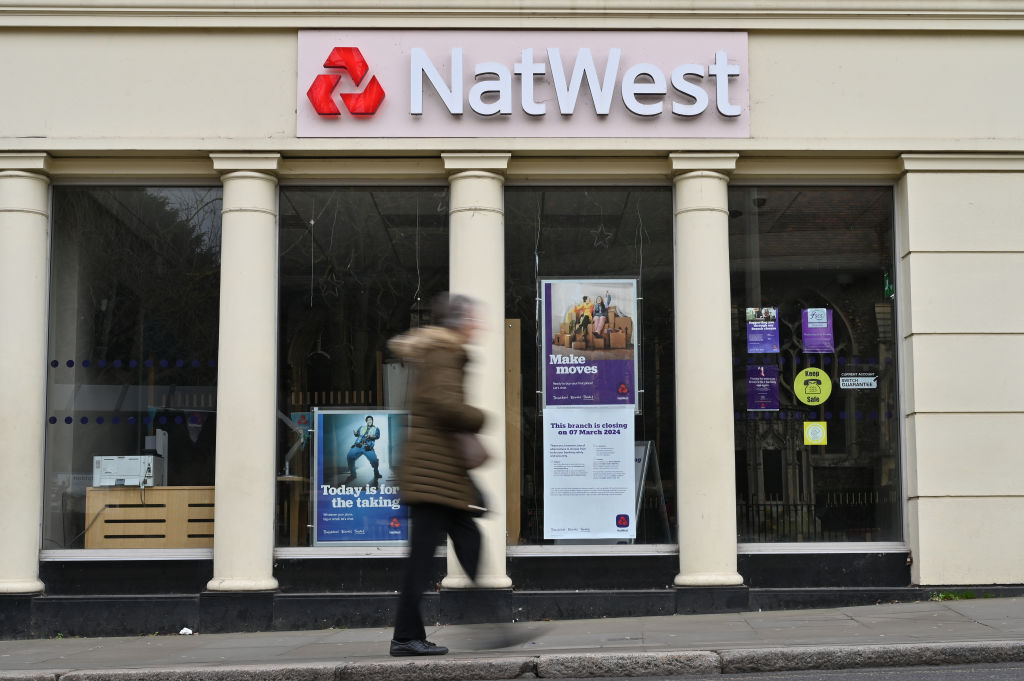 NatWest boss says a return to full private ownership expected next year
NatWest boss says a return to full private ownership expected next yearThe UK Treasury's stake in NatWest has fallen to below 11% - here is what it means for the share price
-
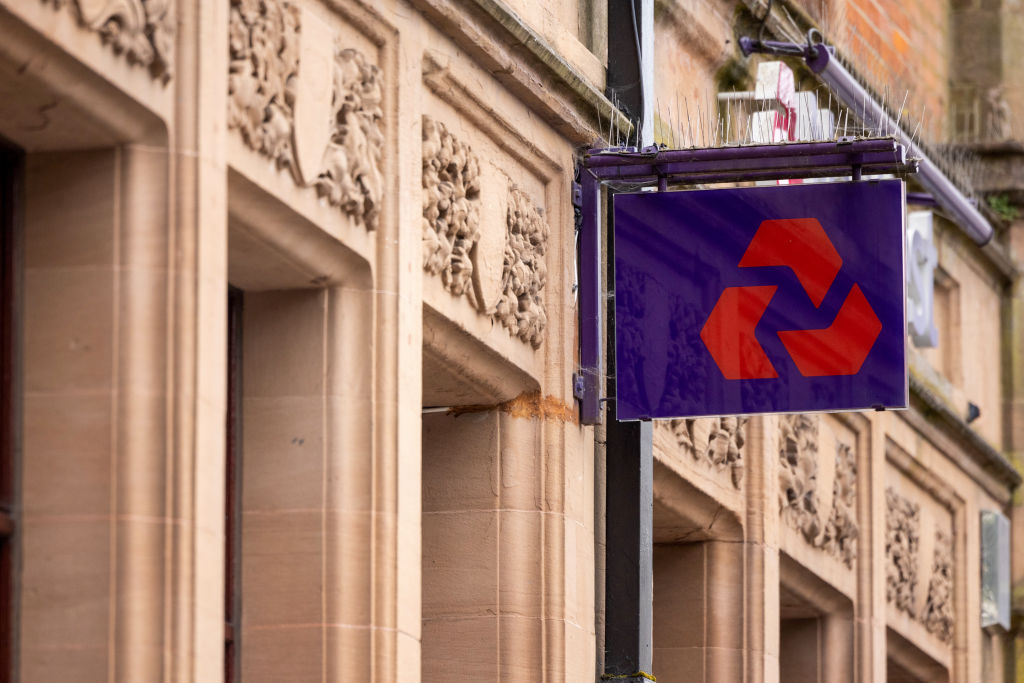 Government sells another £1bn in NatWest shares as full privatisation edges closer
Government sells another £1bn in NatWest shares as full privatisation edges closerThe UK Treasury's stake in NatWest has fallen to just over 11% - here is what it means for the share price
-
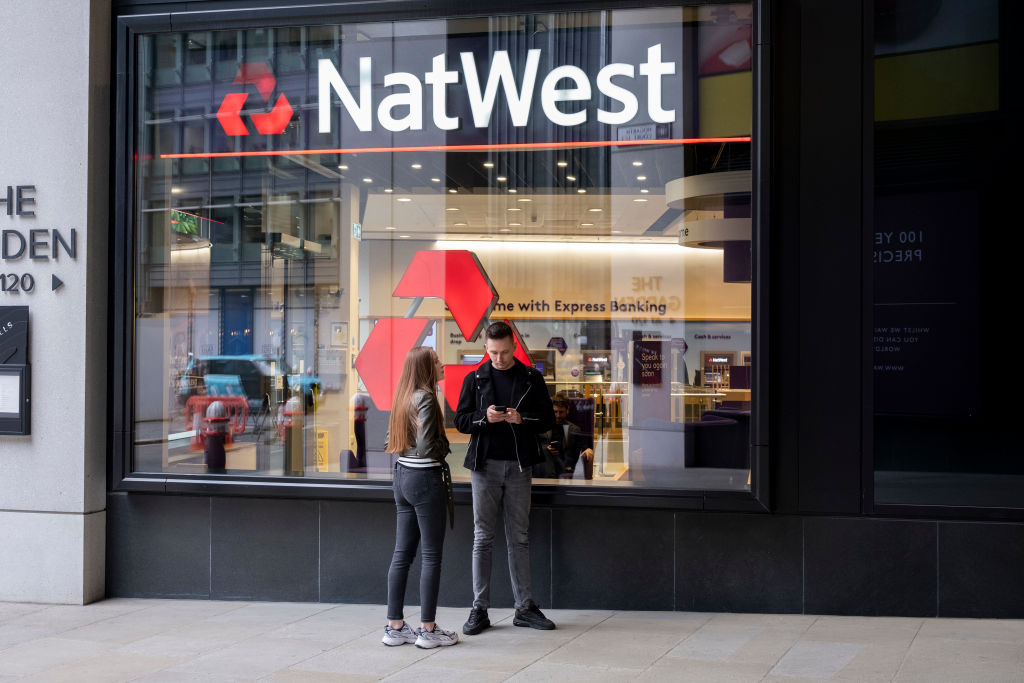 NatWest shares surge after profits beat expectations
NatWest shares surge after profits beat expectationsNatWest, which has been one of the FTSE 100’s best-performing stocks this year, notched up profits of £1.7bn during the quarter
-
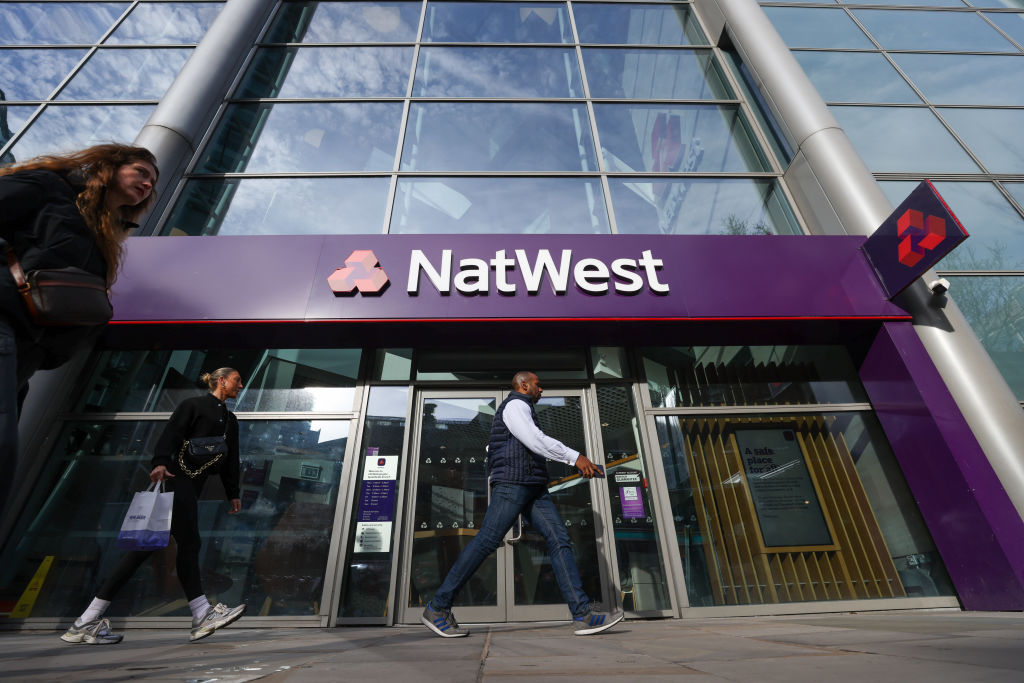 Taxpayer stake in NatWest falls as retail share sale is delayed
Taxpayer stake in NatWest falls as retail share sale is delayedNews NatWest has purchased £1.24 billion of shares back from the Treasury as the general election has stalled plans for a retail offering. Here is how you can still buy NatWest shares
-
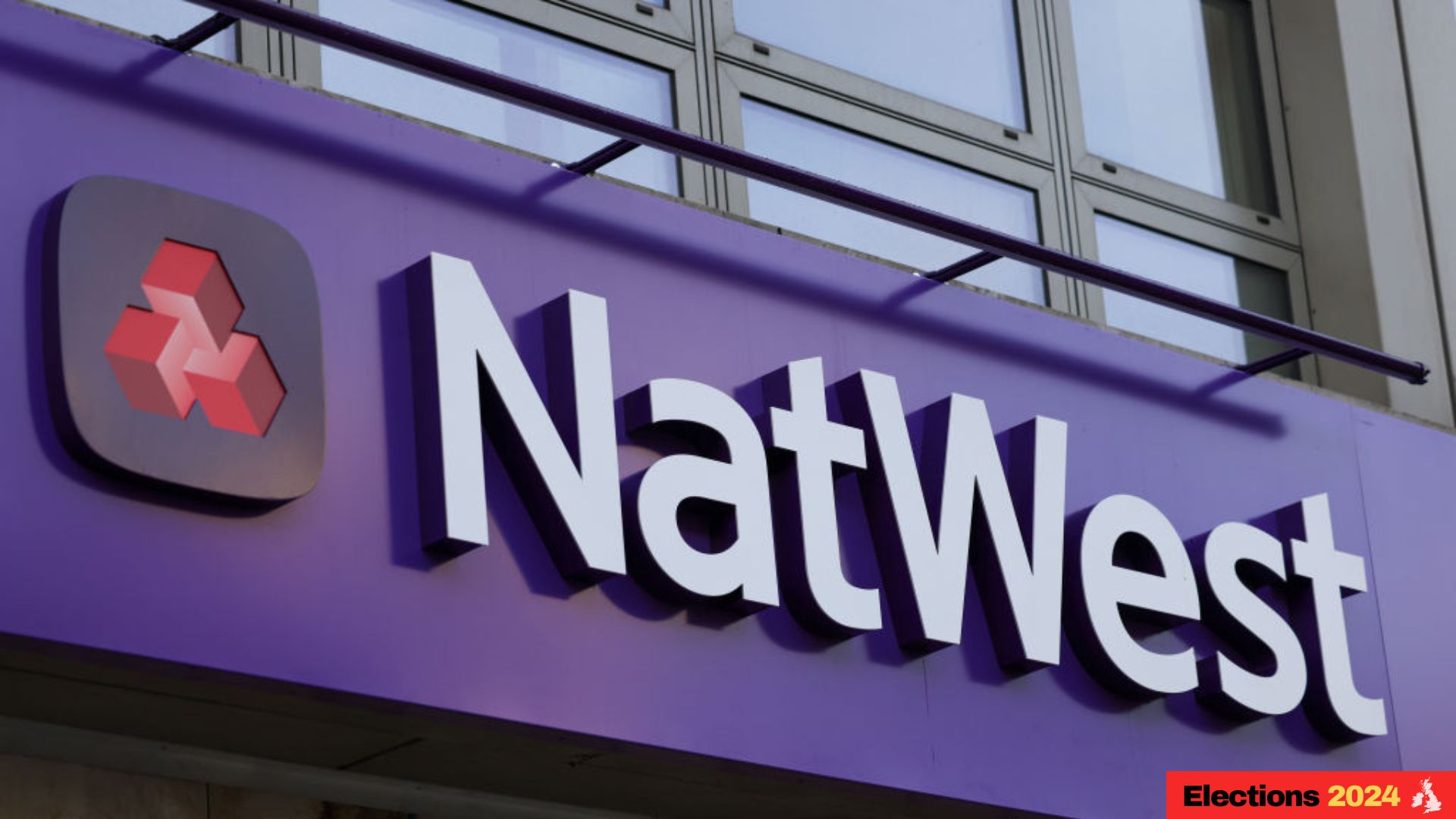 What’s happening to the NatWest share sell-off? Impact of general election 2024 explained
What’s happening to the NatWest share sell-off? Impact of general election 2024 explainedThe UK government has held shares in NatWest Group since the 2008 Financial Crisis. But a plan to sell off a large chunk of them appears to have been delayed.
-
 Spring Budget: Hunt reiterates commitment to NatWest retail share offer
Spring Budget: Hunt reiterates commitment to NatWest retail share offerThe NatWest shares could go on sale as early as this summer, with the government committed to exiting its stake in the bank by 2025/26.
-
 Will mortgage rates fall this year?
Will mortgage rates fall this year?The mortgage price war may be over in a blow for borrowers. Whether you're buying a home, remortgaging or you’re a buy-to-let landlord, we look at the outlook for mortgage rates this year and into 2026
-
 3 stocks to buy in a high interest rate environment
3 stocks to buy in a high interest rate environmentTips We take a look at three stocks to buy in a high interest rate environment that should be able to navigate economic uncertainty.